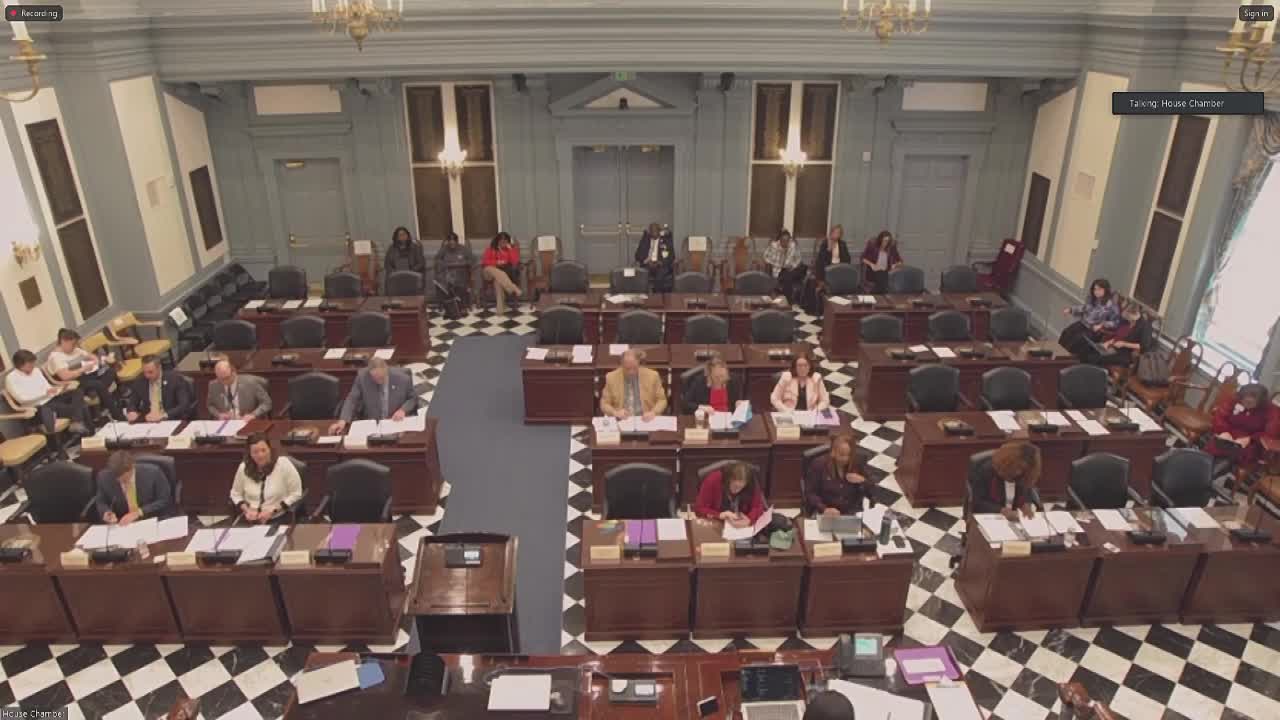Committee rejects parental-consent bill for minors’ abortion care after hours of testimony
Get AI-powered insights, summaries, and transcripts
Subscribe
Summary
The House Health and Human Development Committee considered House Substitute 1 for HB 46, which would require written parental consent for certain minors seeking abortions; after hours of testimony the committee voted and the substitute failed to advance.
The House Health and Human Development Committee considered House Substitute 1 for House Bill 46, a proposal to require written parental consent for certain minors seeking abortion care in the portion of Delaware law that treats minors as under age 16. After extensive testimony from medical and legal experts, advocacy groups and members of the public, the committee voted and the motion to advance the substitute failed to receive the required number of votes.
What the bill would do. Representative Shute, the sponsor, said the substitute would require a parent or legal guardian’s written consent before an abortion may be performed on a minor under the statutory definition used in that section of the code, which the sponsor noted covers 12- through 15-year-olds for the relevant provision. The sponsor said the bill preserves existing protections in Delaware law for medical emergencies, abuse and neglect and retains a judicial bypass procedure for minors who cannot obtain parental consent.
Voices at the hearing. Danielle Pimentel, policy counsel at Americans United for Life, testified in support, arguing parental involvement “ensures this kind of parental involvement by requiring a parent or legal guardian's written consent, engaging them directly in the informed consent process.” She described studies she said linked abortion to negative mental-health outcomes and asked members to vote for the bill. Planned Parenthood of Delaware’s public-affairs manager Nina Rapacelli testified in opposition, saying, “Young people deserve access to safe, confidential, and timely abortion care,” and warning that parental-consent laws create barriers and may delay care. Jovan Rich, policy and advocacy director at the ACLU of Delaware, urged the committee to “say no to this bill today,” saying it would create dangerous barriers for minors, especially those in abusive or unsupportive households.
Public testimony and committee questions. Public commenters both for and against the bill spoke in person and by Zoom. Supporters argued the change would protect minors from coercion and trafficking and ensure parents could help monitor for complications; opponents and several medical associations cited during testimony said parental-consent laws can delay critical care and that judicial bypass procedures are often difficult and traumatic to navigate. Committee members pressed the sponsor and witnesses on evidence about how often parents are already involved, how the current notification process operates (the sponsor said the current statute sends certified mail to the address provided by the minor, which does not guarantee parental awareness), and on how the judicial bypass timeline operates (witness testimony said a bypass request can be resolved in five days under the current statute, with inaction resulting in a deemed waiver).
Key clarifications from the hearing record. The committee record shows these points raised in committee: - The relevant code section treats a minor as under age 16; witness and sponsor repeatedly noted the statute therefore would affect 12-, 13-, 14- and 15-year-olds under this provision. - The sponsor described the current notification process as certified mail to the address the minor provides; a signature on delivery does not prove a parent received or acknowledged the notice. - The substitute preserves existing statutory exceptions and a judicial bypass; the witness explained a court can grant a waiver on clear-and-convincing-evidence and that the statutory timeline for judicial review is intended to be rapid (the witness said a court has five days to rule and that inaction can be treated as a waiver).
Vote and procedural outcome. The committee took a roll-call vote on the motion (moved by Representative Johnson and seconded by Representative Burns). The roll call as recorded in the committee minutes included a mix of recorded “no” and “yes” votes; the clerk announced, “Having failed to receive the required number of votes, the motion fails.” The committee therefore did not report the substitute to the House for consideration.
Why it matters. Supporters said the requirement would ensure parents are involved in important medical decisions for younger minors and safeguard against coercion and delayed care; opponents, including medical organizations cited in testimony, said the policy would create barriers to timely care and could harm minors who have abusive or unsupportive parents. The committee record shows the issue drew substantial public testimony and sustained debate among members.
